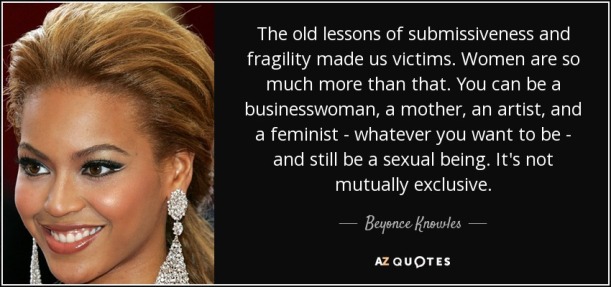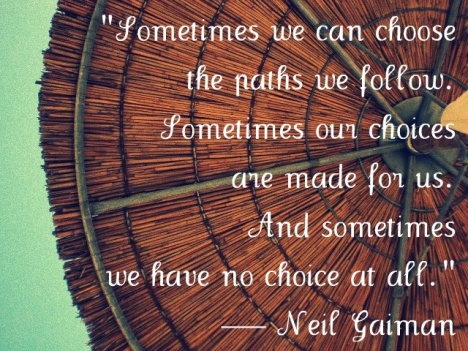As a teenager, I always avoided dating from my tribe arguing that there was a chance I’d date my kin. This fear stemmed from my paternal heritage. By the time he passed on twenty five years ago, my paternal grandfather had 3 wives, 27 children and 105 grandchildren. I suppose in those days it was a privilege to be married to a teacher. Polygamy. Polygamy might seem like such an obsolete subject but it is alive and well. It has only changed its form and learned how to hide itself given the disdain by society. Or how do you explain, that man with a family but has another ‘side dish’ who happens to bear his children by his own accord? In such instances, the ‘wife’ feels diminished and often inadequate.
Lola Shoneyin |
There are some books that engross you in an entertaining story and others that catalyze important conversations. Lola Shoneyin’s ‘the secret lives of Baba Segi’s wives’ manages to do both. The book is a tragicomic depiction of an African male chauvinist Baba Segi and his four wives. Baba Segi believed he was seated at the center and the world revolved around him. His sign of affluence was marrying many wives and having a beehive full of children. Have you ever noticed how people transform from calling each other ‘bae’ to ‘mama nani’ as soon as a baby makes its grand arrival? Well, this is the case in this novel where the women are referred to as ‘iya’, Yoruba for mother as their identity or lack thereof was pegged on their identity to sire children.

Iya Segi, the first wife is a voluptuous woman. Her mother who was ditched by her father when pregnant raised her up imparting bitter lessons on how men were only good for their seed. Ironically when death loomed close, Iya Segi’s mother abandoned her favorite quote of ‘women don’t need husbands’ and married her off to Baba Segi. This she justified with a new quote, “the world has no patience for spinsters. It spits them out”. Iya Tope the second wife was gifted to Baba Segi to compensate for the horrible farm harvest. Her father had leased land to Baba Segi and when the rains led to a bad harvest he gave out his daughter freely in exchange.
Iya Femi, the third wife, is so distinctive that she feels like a real person. As you turn the pages, you are full of anticipation of her antics. At one point when employed as a house help she explains how her employer would sneak on her to inspect if she had stolen underwear. To which she remarks, “Why would I wear stolen underwear? They were buried in the big sack of rice in the pantry”. Iya Femi also used religion at her own convenience. She is thus the mastermind of hatching plots aimed at frustrating the fourth wife, Bolanle. The latter endures insults, insinuations that she practices witchcraft and being served chewed meat among other frustrations.
Bolanle was Baba Segi’s prized possession. Unlike the other wives, she was educated and a degree holder at that. Her barrenness however eroded his affection as it was embarrassing him. Her womb, as he puts it, had chosen to be hostile to his seed. You might be forgiven if you are unsympathetic to her plight. After all, why would an educated woman like Bolanle willingly agree to be married as the fourth wife? Her own mom could not understand her choice. She had deprived herself to ensure that Bolanle and her sister got an education. Yet she was choosing a polygamist ogre? An orangutan? Was her back broken such that she could not sow for herself what she intended to reap from this man’s table? Indubitably, it can be argued that many women agree to polygamous arrangements for financial security. This was however not Bolanle’s reason of getting married as a fourth wife. Bolanle sums it up best “the choices we have to make in this world are hard and bitter”.

In the book, Bolanle is always in a perpetual haze. On the outside, she seems like a happy person who has her life together. On the inside, she was battling inner demons that threatened to rip her apart by battling years of hidden depression. It turns out that Bolanle had been raped at fifteen and when she later tells her mother about it, she retorts, “No daughter of mine could have been raped. That is not the way I brought you up”. Yet she had chosen polygamy to cover her emptiness after the sexual violence had scraped everything from her leaving her like an empty shell. The thing is that nobody tells you that depression induced emptiness weighs the most. Last year the world was shocked when Linkin Park’s lead singer Chester killed himself. But that’s the thing about depression: people don’t kill themselves to end their lives but to end the pain.

Bolanle learned that the hard way and even had to thank the rapist for ‘turning her into a woman’. Then here we are thinking who makes that kind of a choice. Don’t you just hate it when people think that depression is a choice? Like something you can shake yourself out of? That’s because we live in an ignorant world, where if you suffer from a cold people will visit you with all citrus-y connotations. But depression! No. Hapana. People can accept a body part not working but not the brains. This ignorance has fed a stigma that has perpetuated the pain of depression and mental health as a whole.
So what is this big secret held by the wives? As Iya Segi puts it, “the truth, they say, cannot hide itself forever. Even if it conceals itself at the bottom of a well, one day, drought will reveal it”. The secret lives of baba Segi’s wives is Lola Shoneyin’s first novel. For some writers that’s all it takes. Lola has a beautiful way with words especially in bringing her characters to life. Well, she is the daughter-in-law of Wole Soyinka; the first African to win a Nobel prize in literature. You can thus be forgiven if you assumed that their small talk drifts to literature. Suffice it to say, ‘the secret lives of Baba Segis’s wives’ is a brilliant book that uses humor to catalyze a conversation on an important topic- mental health.


Great!
LikeLike